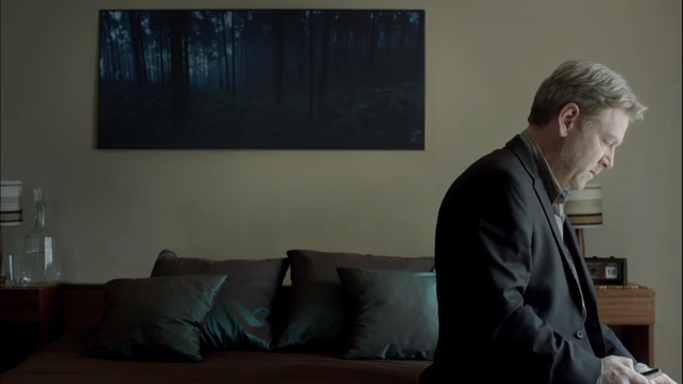
Scandinavian crime dramas filter over to the US slowly- slowly, but surely. Stieg Larsson’s Millennium trilogy has in recent years made a name for itself. Henning Mankell’s Wallander novels have similarly given rise to a long-running Swedish television series, and become so immensely successful that the BBC has started to air an English-language one of its own. BBC’s Wallander is comprised of a mainly British cast, though many minor characters are themselves Swedes or natives of whatever setting they are in. It is filmed in Sweden, and any text that appears— street-signs, documents, the lettering on the side of police vehicles— are in Swedish. And somehow, it feels entirely natural, despite the fact that everyone speaks English.
Wallander is a quiet affair, stretched across an open landscape, a great Scandinavian landscape, under a wide expanse of sky. It’s not particularly gritty, but there is nonetheless a very real quality to everything. The people are earnest, if not to others then at the very least to their own desires and ends. The colors take on a cool cast, a just very slightly washed out. They’re clean, in a whitewashed boards and birchwood sort of clean; plain, but not glossed-over. In this way, the cinematography is deceivingly simple, but astoundingly beautiful. There are little gems everywhere: poppies in a frosted meadow, a moth fluttering against the window, an undulating flaxen field.
This production is a well-shot series that never feels like it tries too hard. Even the darkest moments are never too horrifying; they might be tense, fraught with danger, but never quite jumping-in-your-seat, eye-shieldingly terrifying. It’s not about spectacle and never about special effects, but about the characters and about the story, about cool logic and human emotion all at once. The titular Kurt Wallander is played by Kenneth Oddslot Branagh, who does an admirable job in channeling the constantly exhausted (but strongly principled) police detective who sees far more in lifetime than anyone rightly should. The poor man falls asleep in his car, at his desk, in his chair, but seemingly never in his own bed. Wallander is very good at what he does, but out of a sense of nobility tends to dash into danger without feeling the need to notify his colleagues, and even worse, grows very emotionally attached to the victims he sees.
Having never seen the Swedish-language program, I can neither counter nor affirm the frequent insisting that it is better acted, more faithful to the tone of the novels, or generally better than the BBC version. However, I can confidently attest that BBC’s Wallander is a production of integrity and quality. It is subtle. It is not afraid of a quiet, low-key flow of events, but at the same time is never stagnant. It is a long drive across a wide landscape, a watery sun through the trees, and the house by the sea. It is the quiet little town and not-so-quiet happenings, and the road that curves the next hill and disappears into the distance.
BBC Wallander has just concluded its third series of three 1.5hr. episodes. PBS has also recently picked it up in the US.


Leave a Reply
Be the First to Comment!